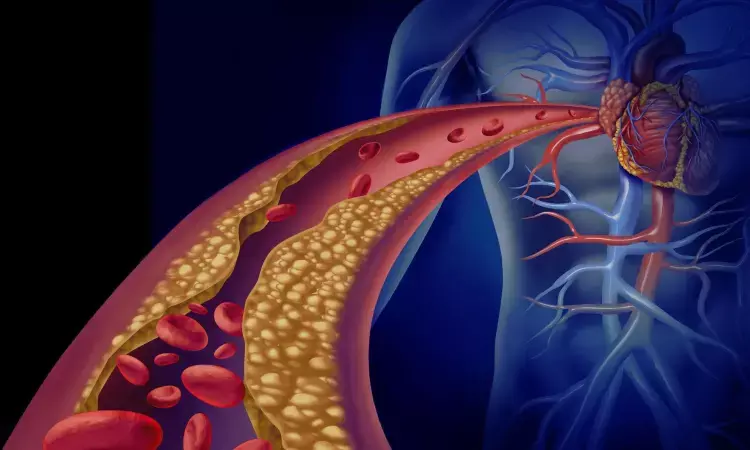- Home
- Medical news & Guidelines
- Anesthesiology
- Cardiology and CTVS
- Critical Care
- Dentistry
- Dermatology
- Diabetes and Endocrinology
- ENT
- Gastroenterology
- Medicine
- Nephrology
- Neurology
- Obstretics-Gynaecology
- Oncology
- Ophthalmology
- Orthopaedics
- Pediatrics-Neonatology
- Psychiatry
- Pulmonology
- Radiology
- Surgery
- Urology
- Laboratory Medicine
- Diet
- Nursing
- Paramedical
- Physiotherapy
- Health news
- Fact Check
- Bone Health Fact Check
- Brain Health Fact Check
- Cancer Related Fact Check
- Child Care Fact Check
- Dental and oral health fact check
- Diabetes and metabolic health fact check
- Diet and Nutrition Fact Check
- Eye and ENT Care Fact Check
- Fitness fact check
- Gut health fact check
- Heart health fact check
- Kidney health fact check
- Medical education fact check
- Men's health fact check
- Respiratory fact check
- Skin and hair care fact check
- Vaccine and Immunization fact check
- Women's health fact check
- AYUSH
- State News
- Andaman and Nicobar Islands
- Andhra Pradesh
- Arunachal Pradesh
- Assam
- Bihar
- Chandigarh
- Chattisgarh
- Dadra and Nagar Haveli
- Daman and Diu
- Delhi
- Goa
- Gujarat
- Haryana
- Himachal Pradesh
- Jammu & Kashmir
- Jharkhand
- Karnataka
- Kerala
- Ladakh
- Lakshadweep
- Madhya Pradesh
- Maharashtra
- Manipur
- Meghalaya
- Mizoram
- Nagaland
- Odisha
- Puducherry
- Punjab
- Rajasthan
- Sikkim
- Tamil Nadu
- Telangana
- Tripura
- Uttar Pradesh
- Uttrakhand
- West Bengal
- Medical Education
- Industry
Genetic testing for familial hypercholesterolemia may help refine risk stratification beyond LDL-C alone: JAMA

USA: A recent study published in JAMA Cardiology has revealed an association between the presence of familial hypercholesterolemia (FH) variants and a 2-fold higher risk of coronary heart disease (CHD), even when LDL-C was only moderately elevated.
The elevated CHD risk appeared to be explained by the higher cumulative low-density lipoprotein cholesterol (LDL-C) exposure in those with an FH variant compared to those without.
Familial hypercholesterolemia is a genetic disorder that often leads to severely high LDL-C and a high risk of premature CHD. However, the impact of FH variants on CHD risk among people with moderately elevated LDL-C is not well quantified. Therefore, Yiyi Zhang, Division of General Medicine, Columbia University, New York, New York, and colleagues assess CHD risk associated with FH variants among individuals with moderately (130-189 mg/dL) and severely (≥190 mg/dL) increased LDL-C. They also quantified excess CHD deaths attributable to FH variants in US adults.
The study included 21,426 individuals without preexisting CHD from 6 US cohort studies, 63 of whom had an FH variant. Data collection was done from 1971 to 2018, and the median (IQR) follow-up was 18 years.
The associations between FH variants and incident CHD were estimated using Cox proportional hazards models. The Cardiovascular Disease Policy Model projected excess CHD deaths associated with FH variants in US adults.
The study revealed the following findings:
- Of the 21 426 individuals without preexisting CHD (mean age 52.1 years; 56.2% females), an FH variant was found in 22 individuals with moderately elevated LDL-C (0.3%) and 33 individuals with severely elevated LDL-C (2.5%).
- The adjusted hazard ratios for incident CHD comparing those with and without FH variants were 2.9 and 2.6 among individuals with moderately and severely elevated LDL-C, respectively.
- The association between FH variants and CHD was slightly attenuated when further adjusting for baseline LDL-C level, whereas the association was no longer statistically significant after adjusting for cumulative past LDL-C exposure.
- Among US adults 20 years and older with no history of CHD and LDL-C 130 mg/dL or higher, more than 417 000 carry an FH variant and were projected to experience more than 12 000 excess CHD deaths in individuals with moderately elevated LDL-C and 15 000 in those with severely elevated LDL-C compared with individuals without an FH variant.
"The findings suggest that genetic testing for familial hypercholesterolemia may help refine risk stratification beyond LDL-C alone," the researchers wrote.
"There is a need for further research to assess the value of adding genetic testing to traditional phenotypic FH screening," they concluded.
Reference:
Zhang Y, Dron JS, Bellows BK, et al. Familial Hypercholesterolemia Variant and Cardiovascular Risk in Individuals With Elevated Cholesterol. JAMA Cardiol. Published online January 31, 2024. doi:10.1001/jamacardio.2023.5366
Dr Kamal Kant Kohli-MBBS, DTCD- a chest specialist with more than 30 years of practice and a flair for writing clinical articles, Dr Kamal Kant Kohli joined Medical Dialogues as a Chief Editor of Medical News. Besides writing articles, as an editor, he proofreads and verifies all the medical content published on Medical Dialogues including those coming from journals, studies,medical conferences,guidelines etc. Email: drkohli@medicaldialogues.in. Contact no. 011-43720751


